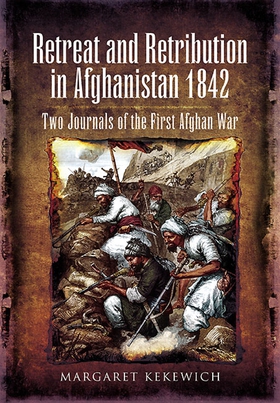
Lägg till önskelistan
Retreat and Retribution in Afghanistan 1842 e-bok
Pris
115 kr
The blow to British pride and confidence caused by the crushing defeat of their army in Afghanistan during the winter of 1841/2 compares in its impact to the disaster in New York on 11 September 2001. The British had replaced a popular and effective monarch with a weak one in the mistaken belief that he would keep the Russians at bay. Two years later, nearly all the British and Indian soldiers in the region were killed in a popular uprising.
Margaret Kekewich’s perceptive new study of ...
E-Bok
115 kr
Pris
Förlag
Pen and Sword
Utgiven
23 Februari 2021
Längd
224 sidor
Genrer
Historia & Arkeologi, Samhälle Och Politik, Fackböcker
Språk
English
Format
epub
Kopieringsskydd
Vattenmärkt
ISBN
9781844685905
The blow to British pride and confidence caused by the crushing defeat of their army in Afghanistan during the winter of 1841/2 compares in its impact to the disaster in New York on 11 September 2001. The British had replaced a popular and effective monarch with a weak one in the mistaken belief that he would keep the Russians at bay. Two years later, nearly all the British and Indian soldiers in the region were killed in a popular uprising.
Margaret Kekewich’s perceptive new study of the conflict describes the British defeat, their reoccupation of Afghanistan in the spring of 1842, then their final withdrawal at the end of the year. Her account, which is based on the graphic diaries written by two British eyewitnesses, gives a fascinating insight into the conflict in Afghanistan 150 years ago.
The story is told by, first, Lady Sale who together with over 100 women, children and soldiers was captured and imprisoned by the Afghans. The second account comes from the Reverend Allen, a young chaplain to the army that invaded Afghanistan in April 1842 to avenge British humiliation and rescue the prisoners. Both these eyewitnesses deplored the follies that had led to war and defeat and also the suffering that was inflicted on many innocent Afghans.
At a time when British forces are deeply engaged in another war in Afghanistan, Margaret Kekewich offers a balanced and thought-provoking new perspective on a previous conflict in the region.




